Northern Cardinals. Blue Jays. American Goldfinches. You expect to see these birds during the winter. But birds like the American Robin and the Hermit Thrush catch many New Englanders off guard this time of year. After all, shouldn’t they be sunning themselves down south?
Not necessarily. According to Joan Walsh, Mass Audubon’s Bertrand Chair of Field Ornithology and Natural History, many traditionally migratory birds are sticking around, possibly due to increasing temperatures and a more readily available food source (i.e., berries)—a trend that’s been increasing over the last 40 years. And, in some cases, we humans have contributed to the number of birds seen this time of year.
Though quiet as a mouse in winter, the Hermit Thrush is full of song in spring. In fact, you’re likely to hear this small, olive-brown-colored forest dweller long before you see him. Considered by many to be the finest songster in North America, the Hermit Thrush utters a song that consists of a series of ethereal flutelike phrases.
It may be a few months before you hear the fabled “American Nightengale” sing its sweet song, but if you’re lucky and attentive, you can hit the trail to spot this bird: Hermit Thrushes prefer secluded woodland habitats, from the damp mixed forests of western Massachusetts to dry pine barrens along the coast. Common characteristics of their nesting areas are a dense understory (think saplings and shrubs) and an abundance of evergreens.
Enjoy these five photos of Hermit Thrushes from our annual Picture This: Your Great Outdoors photo contest, and if you haven’t yet, check out this year’s photo contest winners!
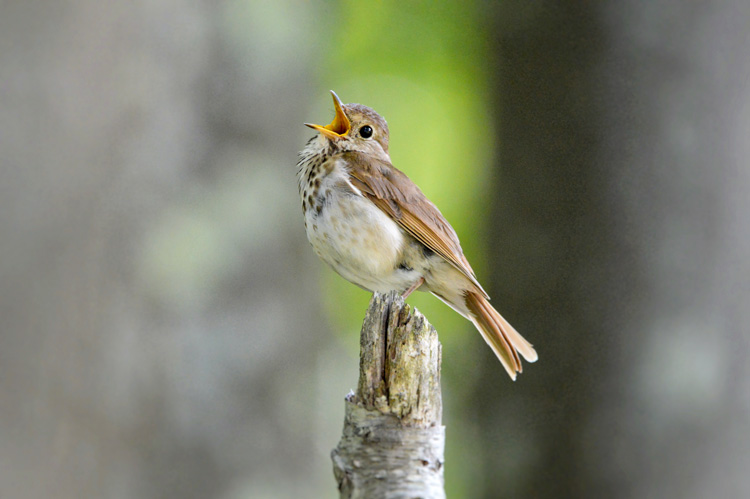
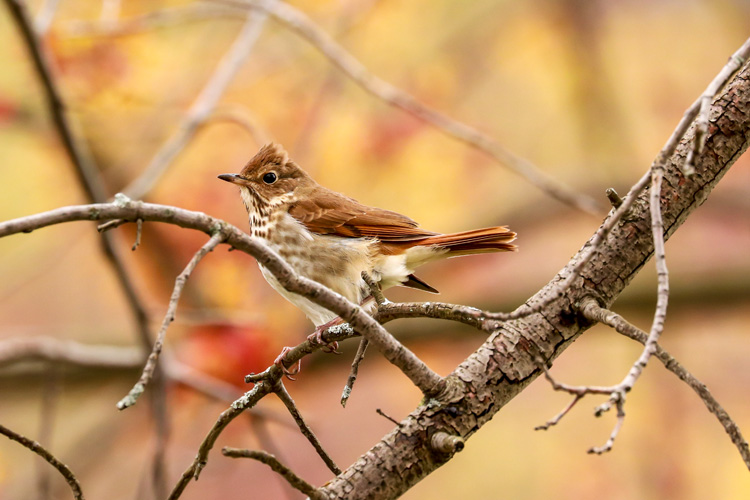
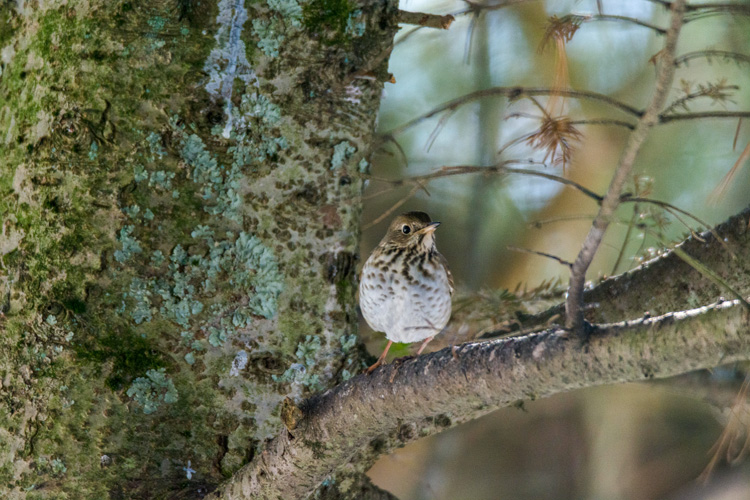
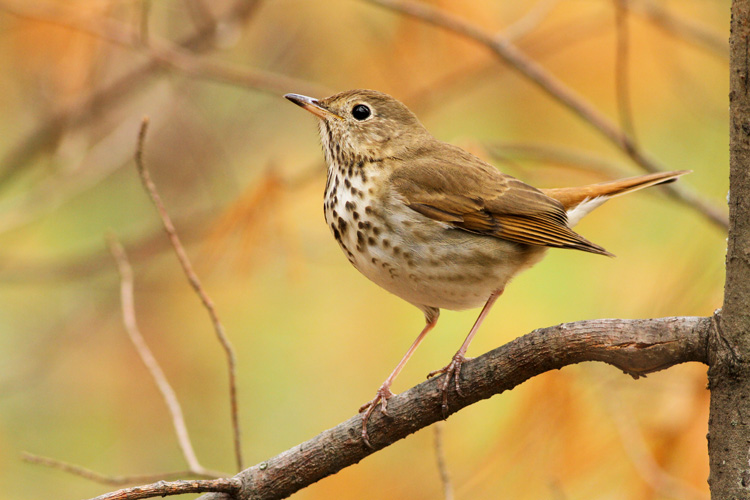
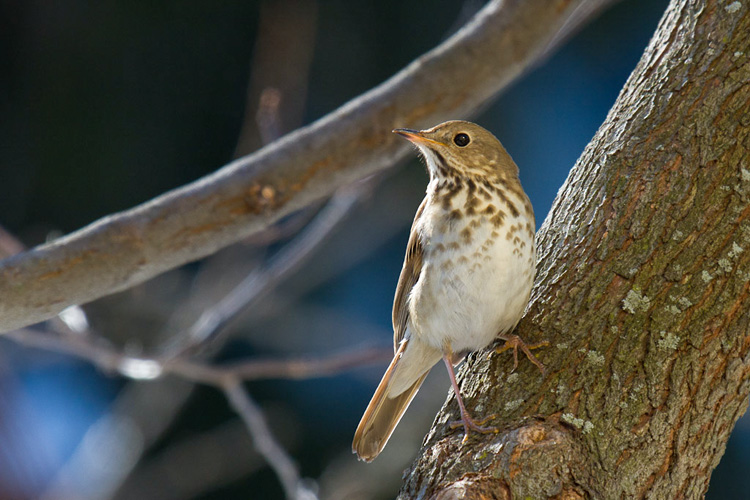


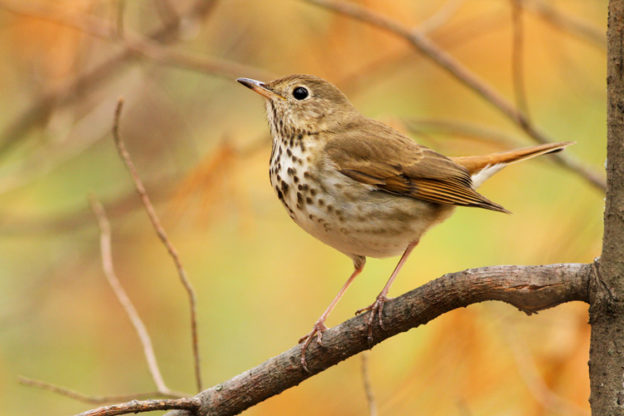
I have seen them last winter in Boston